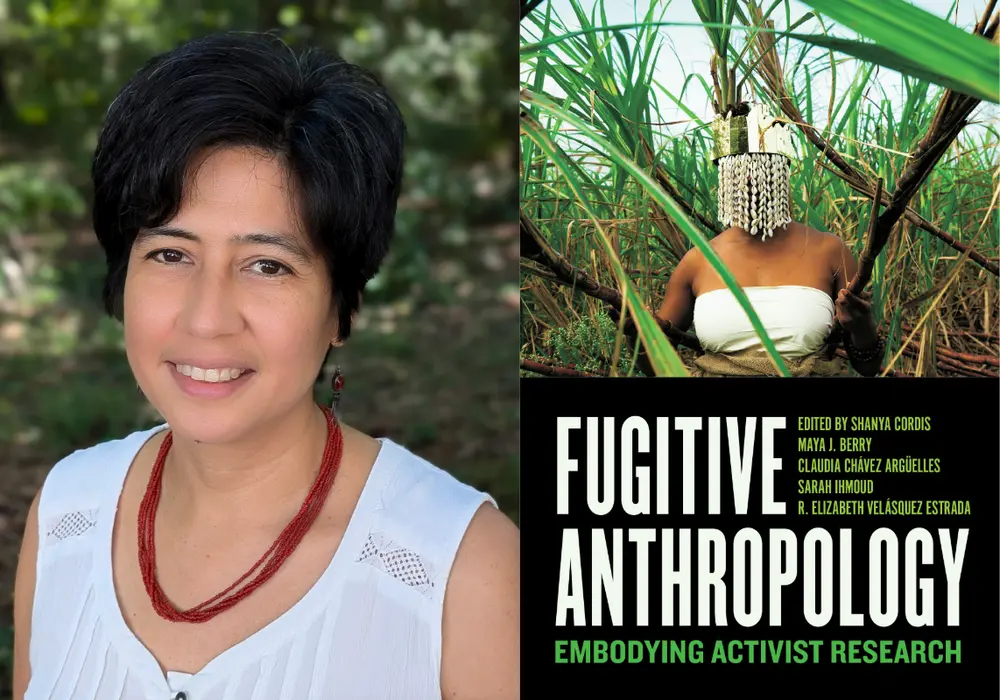
Professor R. Elizabeth Velásquez Estrada co-edited the forthcoming edited collection Fugitive Anthropology: Embodying Activist Research (University of Texas Press) with Shanya Cordis, Maya J. Berry, Claudia Chávez Argüelles, Sarah Ihmoud. The volume explores the power relations that racialized, gendered, and sexualized researchers grapple with while conducting activist research.
Grounded in Black and Indigenous political struggles and a commitment to collective liberation, the volume argues for adopting a feminist ethos in field and academic research that embraces embodied knowledges and fugitive sensibilities. This ethos they argue will create spaces for imagining and creating liberatory worlds within and beyond the university. Rosa-Linda Fregoso (University of California Santa Cruz) has praised the volume as "a bold and lucid endeavor. At once methodologically unruly and astute, critically engaging and meticulously argued, its razor-sharp analytics are a testament to the power of 'theory in the flesh’.”
The collaboration between Velásquez Estrada and the volume’s co-editors began with their 2017 Cultural Anthropology article, “Toward a Fugitive Anthropology: Gender, Race, and Violence in the Field” where they shared their experiences with racial, gender, and sexual violence while conducting fieldwork. In the article they developed the concept of fugitive anthropology as a framework for conducting politically engaged, feminist, and decolonized research. A Spanish translation of this article will be published in the edited collection Giros: Textos clásicos de antropología contemporánea edited by Ángel Díaz deRada in 2026.
In addition to co-editing Fugitive Anthropology, Velásquez Estrada authored the chapter "Fugitive Collaborative Research: Seeking Mutuality as Accountability.” A Spanish translation of this chapter was published in the special issue “Violencias etnográficas, sexuales y de género” of Revista de Antropología Experimental.
In September, she published “Women’s Politics of Solidarity in El Salvador: Familial Love, Carceral Peace, and Patriarchy” in Critical Criminology. In the article she explores the influence of deeply embedded gender expectations on relationships between gang members and their families, and how gang violence, and the state's response to it, stem from patriarchal ideas of masculine protection. She connects the patriarchal ideas of protection, familial bonds, and the advocacy of female relatives of gang members to provide a richer understanding of the complex relational landscape of gangs.
Additionally, a Spanish translation of her 2022 American Anthropologist article “Intersectional justice denied: Racist warring masculinity, negative peace, and violence in post-peace accords El Salvador” was published as a chapter in Corporalidades Combativas: Género y Sexualidades en la guerra Interna Salvadoreña (1970-1992) edited by Amaral Arévalo and Ana Silvia Ortiz Gómez.